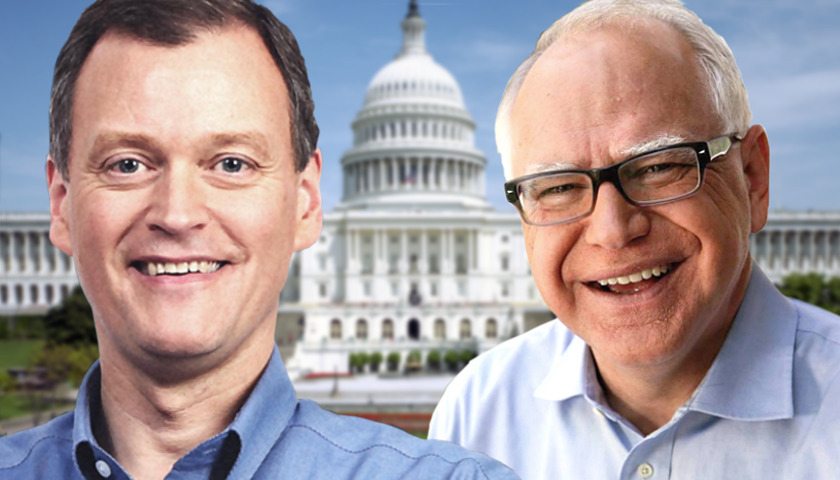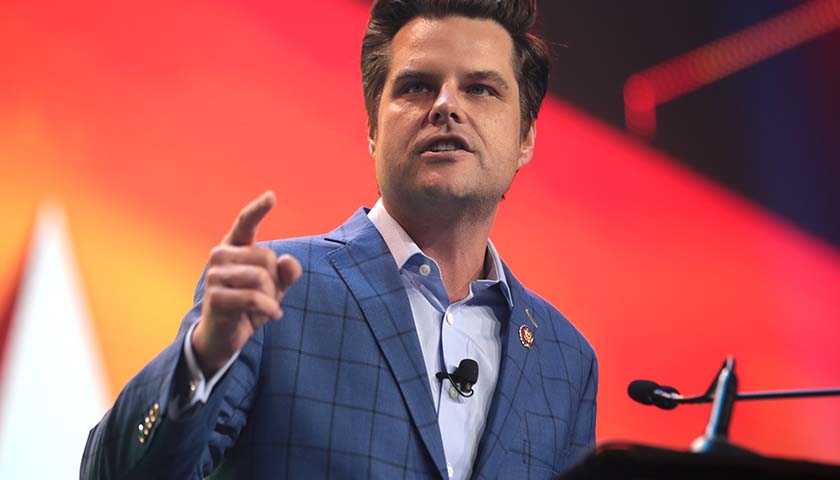With election day on the horizon, Minnesota’s gubernatorial candidates came out swinging during a Tuesday night “Greater Minnesota Debate” in Willmar to discuss the issues affecting rural Minnesotans, such as agricultural regulations and refugee resettlement.
Republican Jeff Johnson started the debate by criticizing opponent Rep. Tim Walz (D-MN-01) for voting in line with his party leaders more than 90 percent of the time.
“Your voting record is quite liberal. You were with Nancy Pelosi and Keith Ellison over 90 percent of the time; I think it’s 94 percent. This suggestion that you’re one of the most bipartisan people there—the bar is pretty low,” Johnson said.
Walz responded by asking Johnson if he would have voted with Pelosi to “improve veterans’ suicide care” or to “improve the GI Bill.”
“[Johnson] would have voted on many of those things that all of you would agree with. This is what’s wrong with our system,” Walz continued.
The two candidates then discussed transportation in the state, offering voters two very different visions for public transit. Walz, on the one hand, would consider increasing the gas tax to expand the state’s Light Rail system, while Johnson has promised to not raise a single tax and would instead invest in fixing and building roads.
“You can’t promise the world to everyone and then claim you’re going to be careful with our money,” Johnson said, with Walz criticizing him for “saying he knows better than the leaders in our metropolitan area to make some of those decisions as governor.”
To fund additional road projects, Johnson said he doesn’t believe that “we need new taxes,” but would spend money “from the general fund for transportation” and is open to using a bonding bill to pay for roads.
On the issue of regulation, Johnson received cheers from the crowd when he suggested that state regulators spend one week per year working for the citizens impacted by their regulations.
“So they can get a feeling of what their regulations actually do. Whether it’s a farmer, whether it’s a childcare provider, whether it’s a group home regulator. I’d say the same thing for the governor and legislators too,” Johnson stated.
Walz agreed with the idea, but suggested that Johnson spend a week as a teacher before criticizing the education policies Walz supports.
“I think if you’re going to be governor you should teach some school before you criticize school and tell me that all I was doing was running things up,” said Walz, who spent 20 years as a teacher before entering politics.
The debate concluded with a discussion of health care and immigration, two of the most controversial issues in the state.
Johnson repeatedly challenged Walz to clarify whether or not he supports a single-payer health care system, but Walz simply said he doesn’t “necessarily care what this looks like.”
“The only way to bring cost down, in the long run, is to understand what’s driving up the cost in the first place,” Walz continued. “I challenge all of you to tell me what it costs to fix a broken arm. There’s no market. There’s no price transparency.”
Johnson responded by criticizing Walz’s proposal to force all Minnesotans “onto one government plan,” saying he wants “to move in exactly the opposite direction.”
“Because one of the reasons we’re in such a terrible spot right now is because government took over a lot of what we’re doing really well in Minnesota,” he added.
On immigration, both candidates have put forward controversial proposals, but on exactly opposite ends of the political spectrum. Johnson, for instance, wants to indefinitely end Minnesota’ participation in the Refugee Resettlement Program, while Walz supports making Minnesota a sanctuary state for illegal immigrants.
Johnson pointed to a recent scandal in St. Cloud, where residents were called “racist” and “white supremacists” for asking questions about the cost of the Refugee Resettlement Program.
“The responsibility for immigration reform lays with the federal government,” Walz said, noting that crime is lower in sanctuary states.
“In communities where people feel the trust to go to the police when crimes are being committed while they are still trying to work on their status, they are more apt to go. In those communities crime is lower, statistically that is factual,” he said.
Tuesday night’s debate was sponsored by AgriGrowth and the Minnesota Corn Growers Association. According to the latest poll, Walz leads Johnson 45 percent to 36 percent.
– – –
Anthony Gockowski is managing editor of The Minnesota Sun. Follow Anthony on Twitter. Email tips to [email protected].




